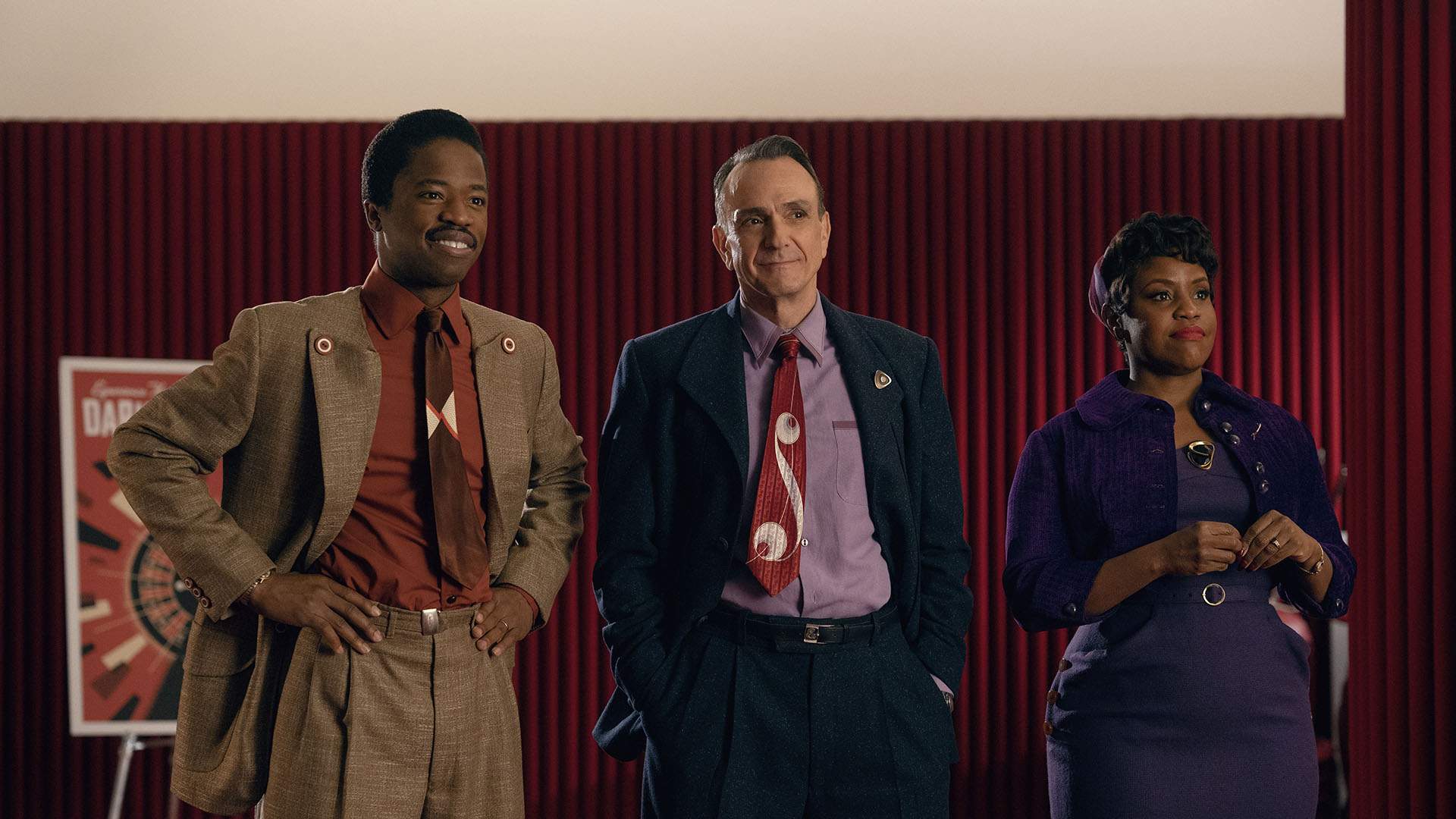From Voicing 'The Simpsons' to Selling Timeshares on the Moon: Hank Azaria Talks 'Hello Tomorrow!'
The self-described “voice guy” puts his acting talents to excellent use in this new Apple TV+ dramedy — and he tells us all about it.
For three decades, Hank Azaria's voice has echoed from the TV screen in almost every possible variation imaginable. Being one of The Simpsons' six main cast members will do that. He's gotten gruff as perennially short-tempered bartender Moe Szyslak, especially when answering prank phone calls. He's cheerfully announced "hi, everybody!" as Dr Nick Riviera. He's hardly bothered with police work as Chief Wiggum, oozed beer-loving self-importance as Duffman, been nerdy as Professor Frink and uttered many a stern reprimand as Super Nintendo Superintendent Chalmers. The list goes on, including characters he no longer voices — such as Kwik-E-Mart owner Apu Nahasapeemapetilon — and everyone from Frank Grimes to Disco Stu.
Azaria hasn't just been heard, and often, since The Simpsons' debut episode in 1989. He's virtually synonymous with the long-running animated sitcom, but his resume isn't short on other highlights. His first film role came courtesy of Pretty Woman, and he's featured in fellow flicks such as Heat, the 1998 American version of Godzilla, Mystery Men, Shattered Glass and Lovelace from there. On the small screen, he's stepped in front of the camera in Herman's Head, Mad About You, Friends and Ray Donovan, too — and led excellent two-season drama Huff, plus sportscaster comedy Brockmire.
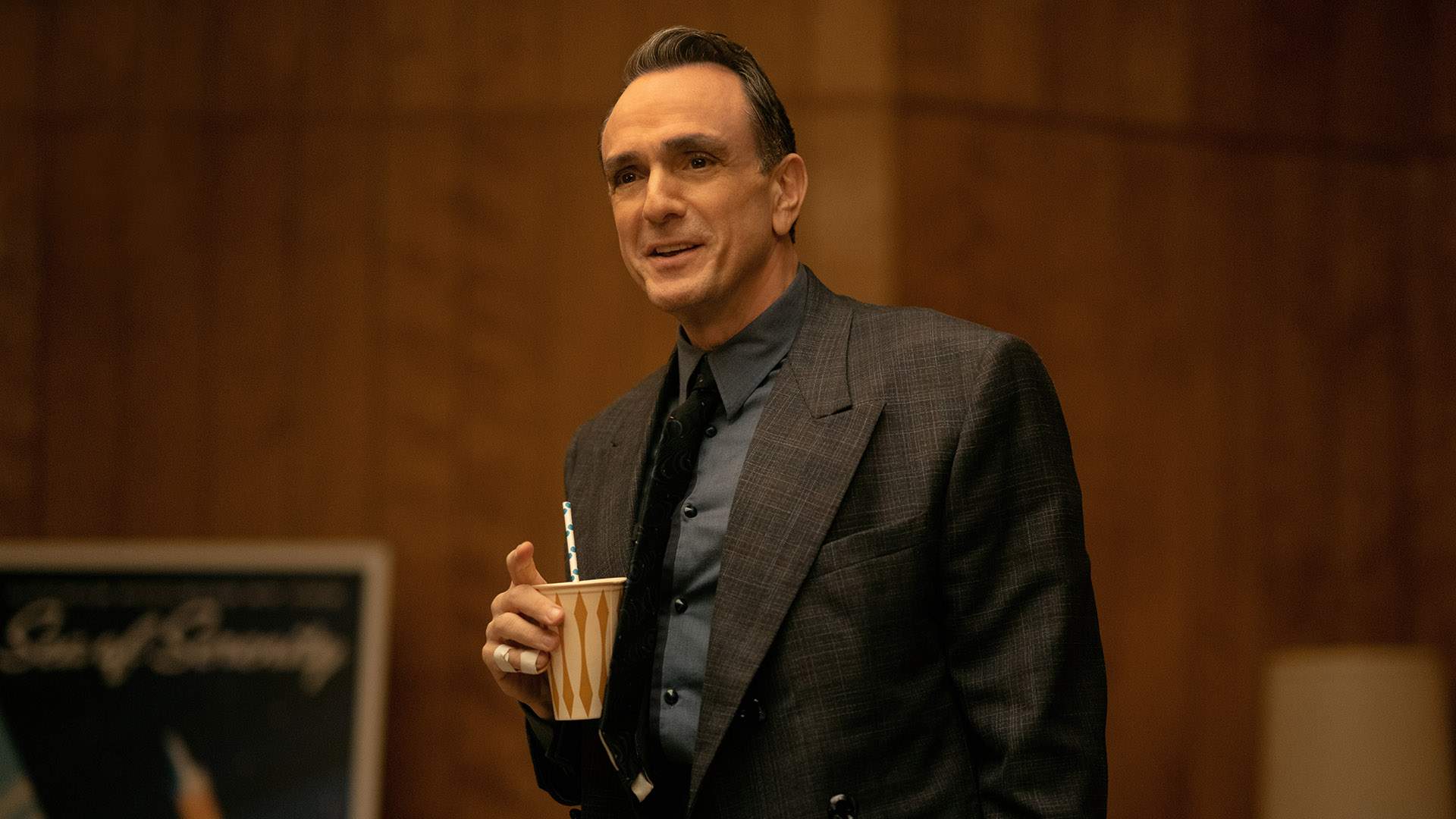
Now, he's stealing scenes in Apple TV+'s Hello Tomorrow!, a retrofuturistic sci-fi dramedy set in an alternative version of the 1950s where The Jetsons-style technological advancements are commonplace. Also an ordinary part of life, amid the hovering cars and robot waiters: everyday folks relocating to the moon. A workplace comedy as well, the series focuses on BrightSide Lunar Residences, specifically regional manager Jack Billings (Billy Crudup, The Morning Show) and his door-to-door salesmen crew. They head from town to town on earth selling timeshares on the planet's only natural satellite. Azaria's Eddie doesn't just sling getaways to whichever customers are willing to pay, either; he's desperate to take the trip north himself.
Azaria uses his own vocal tones in Hello Tomorrow!, but his acting is just as elastic as his voice has repeatedly proven in his best-known gig. Eddie makes a living selling the American dream and, despite seeing that his customers' launches keep getting pushed back, he's bought into it himself. He's also as cynical as they come, and has the kind of gambling addiction that has physical consequences, yet remains hopeful of saying hello to his own better tomorrow. It's a powerful performance in a show filled with them, including from Crudup — who Azaria has always wanted to work with.
"I chased this job down. I've always wanted to work with Billy. I know Billy, I love him as a performer and a person, and I wanted to be a part of this," Azaria tells Concrete Playground. Also part of our chat: what else appealed to him about Hello Tomorrow!, the show's many layers, the kinds of roles he looks for beyond The Simpsons and busting out his voice work on salesmen himself.

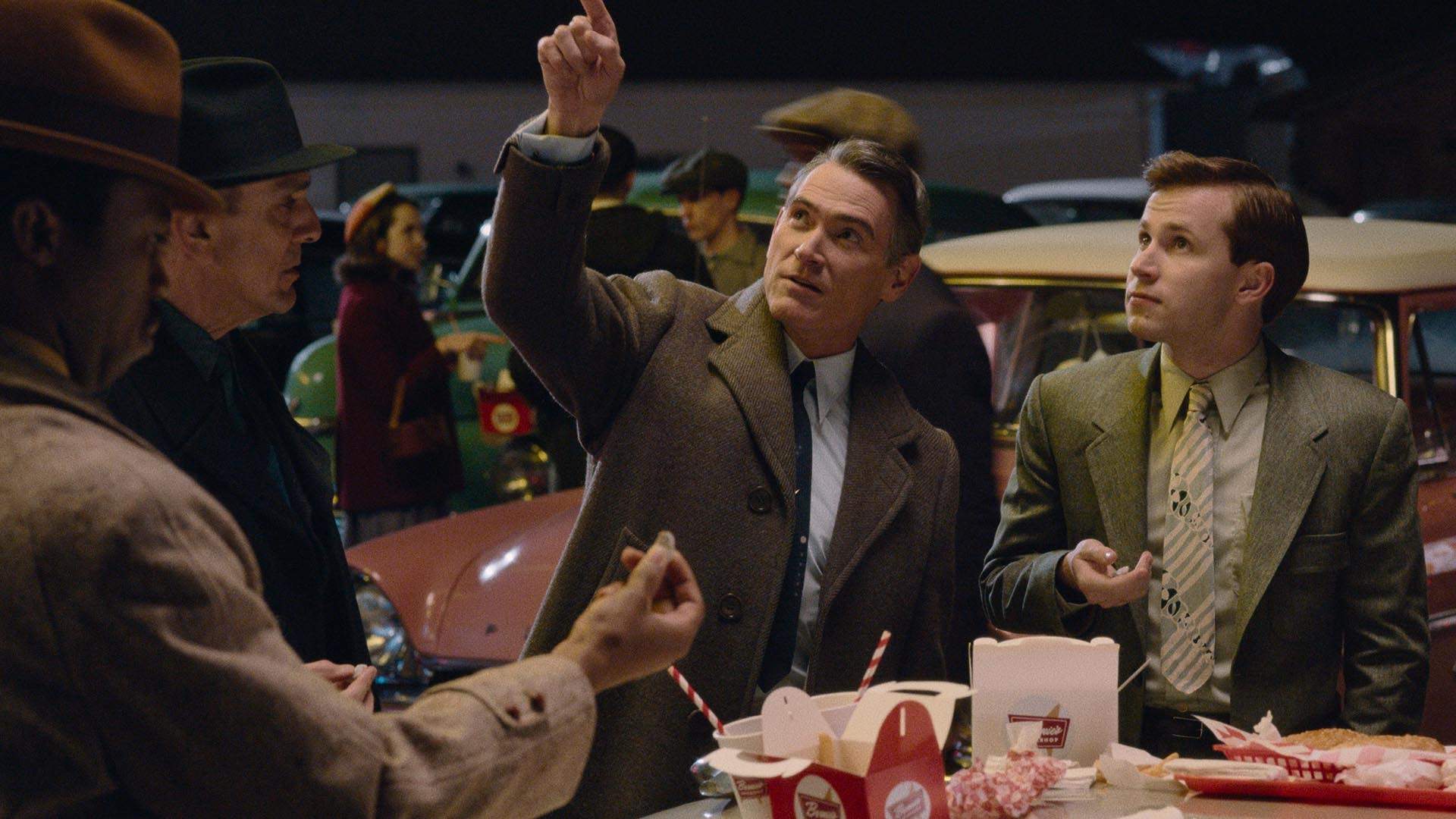
ON HIS FIRST REACTION TO HELLO TOMORROW!
"I imagined a gritty, realistic, Glengarry Glen Ross take on it. I was very surprised by this retrofuturistic element, that to me almost feels like an episode of The Twilight Zone from the 50s that we've expanded into a series.
It's this kind of low-tech but high-tech high-concept idea in a morality play playing out in the context of a futuristic sci-fi premise. It reminds me of a Rod Serling-type idea.
And then [there's] the heightened language of the thing, the kind of Damon Runyan sort of 1950s heightened speak that we all engage in. So it was more of a stylised thing than I had imagined."

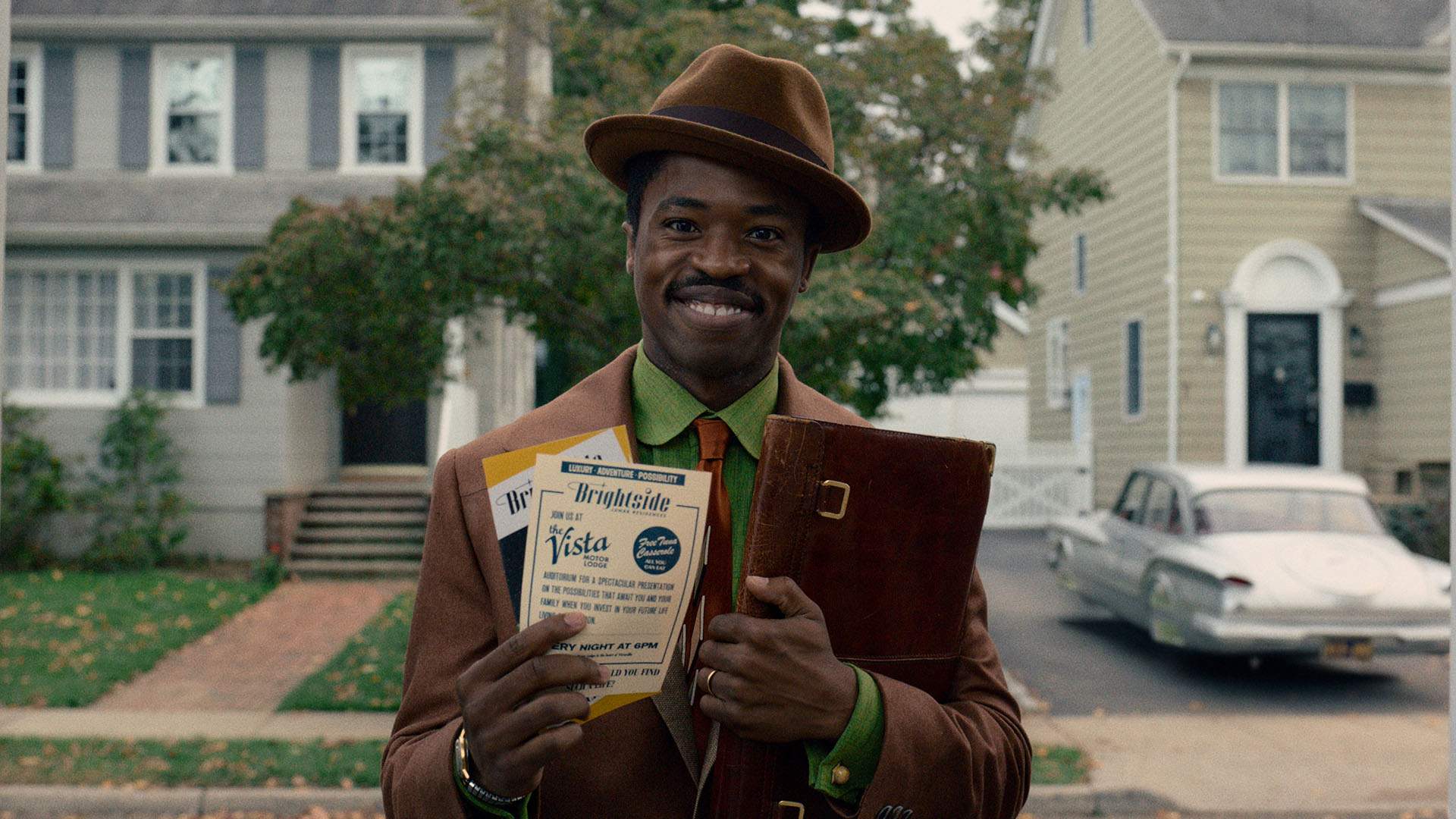
ON HELLO TOMORROW!'S EXPLORATION OF THE AMERICAN DREAM
"It's this metaphor of the American dream being out of reach. Is it or isn't it? What's hope? What's delusion?
What really struck me about Billy's character Jack is he's this really pretty ruthless conman who is believing, I think — it could be hope, it could be delusion on his part. But the hope he's giving people, even though it's an utter lie, [he believes] is good for them. And in many cases, it is. It's kind of what saved his life, and he wants to pass that along.
Billy also refers to the pursuit of money as almost religious zealotry in this world we're in. These folks, there's a religious fervour around their pursuit of the American dream and the capitalist vision that these folks have — like even more than our current society has that we live in. So it's making that extreme version of what these ideals were and holding it up as satire."

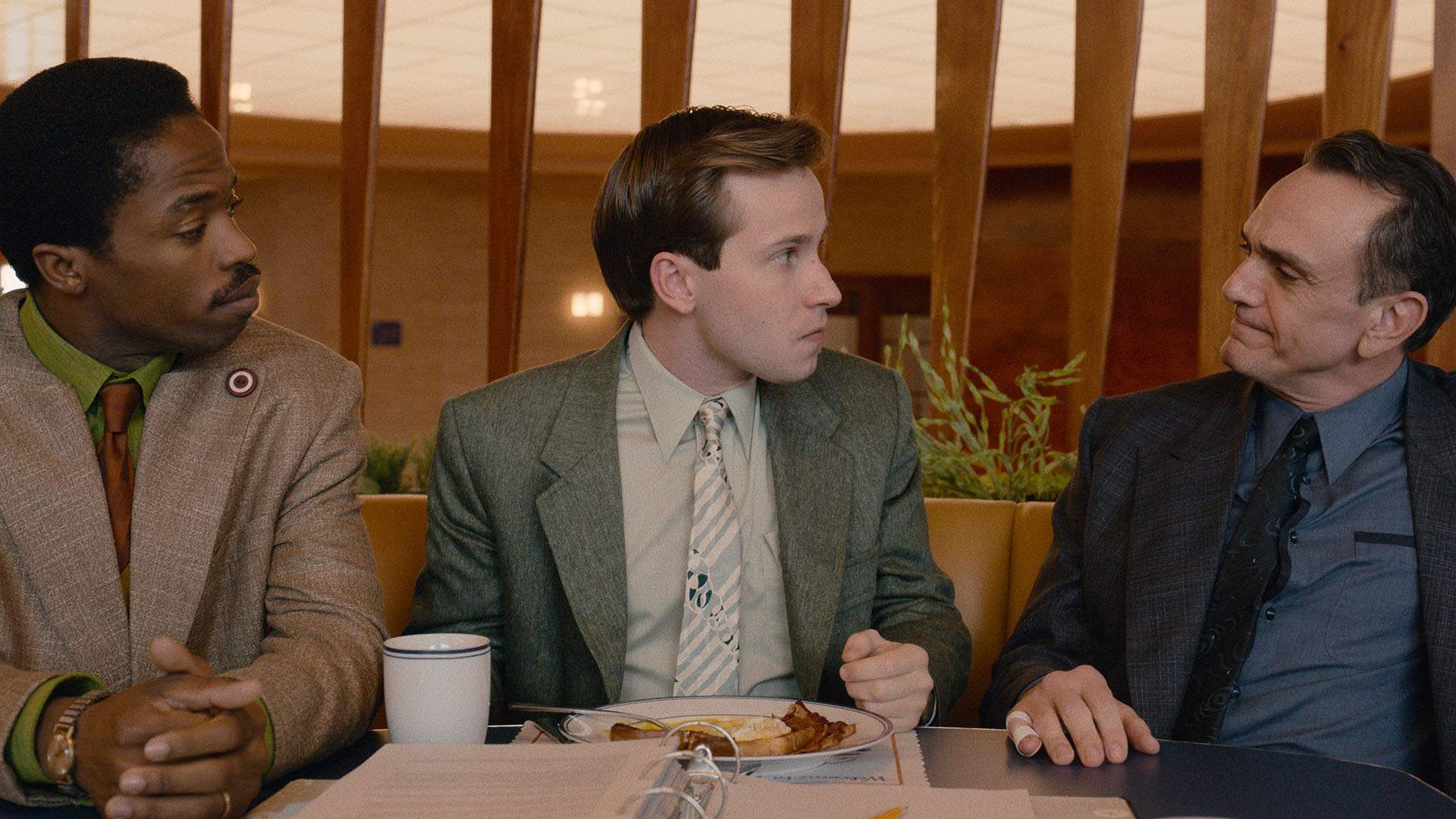
ON PLAYING THE GAMBLING-ADDICTED, LUNAR-DREAMING EDDIE
"That's interesting isn't it? He's the most cynical. I think he believes he's bought into what they're selling, but he doesn't need to do that to sell. He's happy to con people — and knowingly con people, if that's what he's doing.
But it speaks to, I think, the potency of that dream that Billy's character is selling — if even a cynic like Eddie, a gambling-addicted, negative, maladaptive, self-destructive person like Eddie, buys into this. He doesn't need it to sell. I don't think it affects his selling style at all. But even Eddie sees his dream of love and happiness, [living] happily ever after with his beloved Shirley [BrightSide's office manger Shirley, played by Truth Be Told's Haneefah Wood], as happening up there.
It speaks to the power of that delusion, that dream."

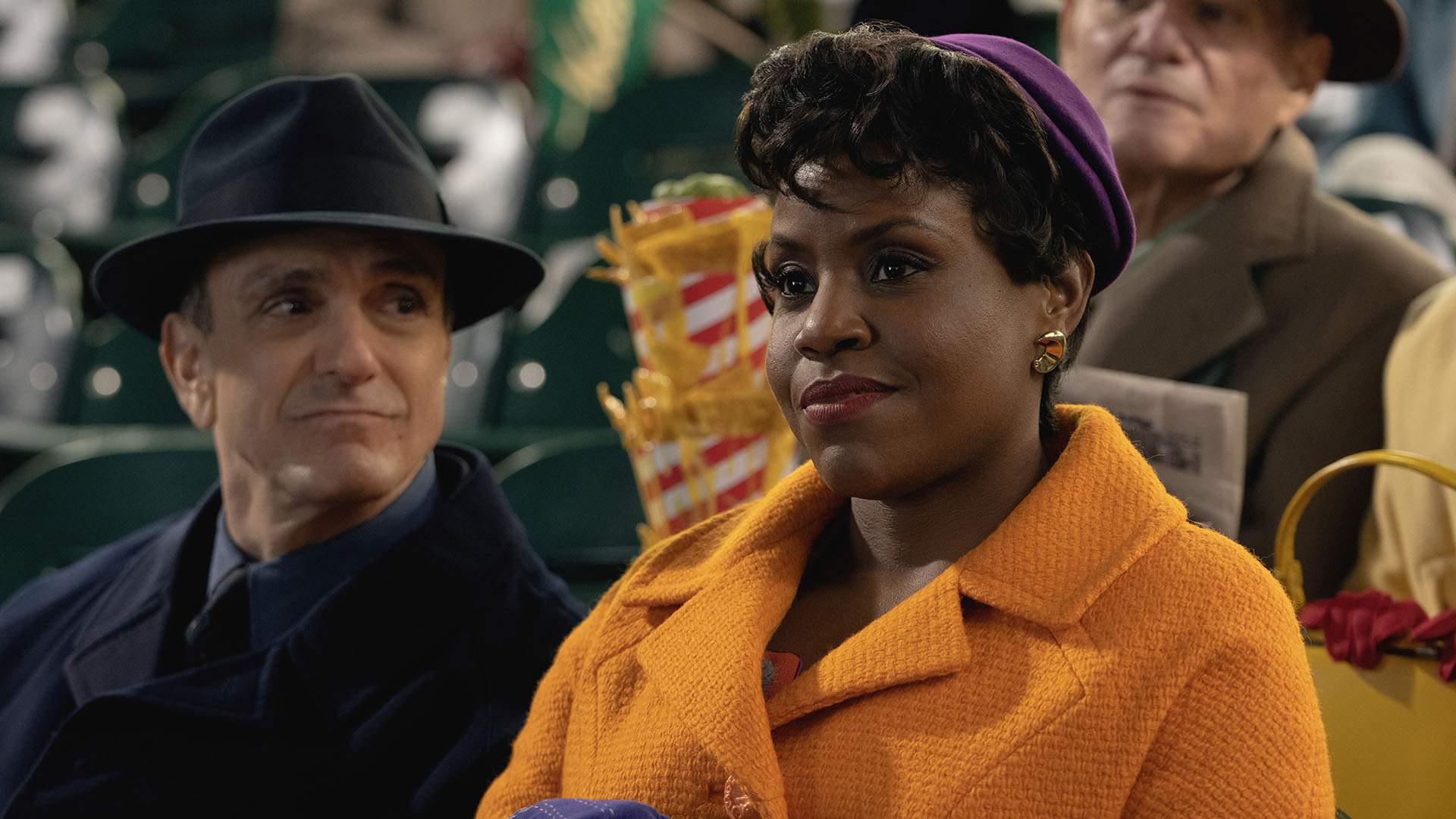
ON THE RESEARCH THAT GOES INTO PLAYING A LUNAR TIMESHARE SALESMAN
"There aren't too many travelling salesmen around these days to talk to. There's a brilliant movie called Salesman, a documentary — I believe from the 60s — about bible salesmen that we all watched, and that really affected me a lot. Just the lives of these guys and their attitudes going door to door.
The movie Tin Man is a great other piece of source material, [about] these conmen salesmen who were just that kind of bottomline, have to sell, really living or dying by whether you sell or not types.
And then, as an actor, just wrapping your mouth and mind and heart around the language, the way these guys are talking — which is so much fun, but challenging at times.
This is more the mind you apply to [Glengarry Glen Ross writer David] Mamet or [The West Wing creator Aaron] Sorkin or Shakespeare, where that's not how I would express myself, and I have to transpose my truth, what's real to me, to how this guy's expressing it. Which takes like a little bit of practice. It's almost like a skill, like a language you learn — or not as hard as that, but related to that.
It is a rhythm thing, though. You find that there's a rhythm and a way of speaking that's sells it, but finding what that is takes a little bit of practice at first."

ON THE TYPE OF ROLES HE LOOKS FOR BEYOND THE SIMPSONS
"It's always different but always the same. Honestly, it's good writing.
If I could write, I would. I can write, but I'm sort of a C+ writer. The stuff I write I guess gets made, but I probably would turn it down if I were offered it, if writer me came to me, with rare exception — Brockmire being one that I helped develop, which I loved, it was an idea I'd had since I was a teenager.
But it's really writing, whether it's comedy, drama, this role, that role. Once you weed out what you really respond to in writing for whatever reason, there's not all that much left.
And if you're fortunate enough to not have to work, then there's not much — to me anyway, there's not that many things that come along that I go 'oh, I could see doing that'. This was one of them."

ON HOW HIS PENCHANT FOR VOICES COMES IN HANDY WITH TELEMARKETERS
"It's rare that you run into a travelling salesman anymore, let alone one that's offering you up on the moon — you'd be crazy not to be immediately suspicious.
But we're all barraged by telemarketers if you still have a home line, or even if you don't! You just get spam calls, and we're all pretty familiar how we usually react to those.
I usually adopt a different voice and try to engage, and turn it around on the folks that call me up at dinnertime. It's one of the fun little perks of being a voice guy."


Hello Tomorrow! streams via Apple TV+. Read our full review.
